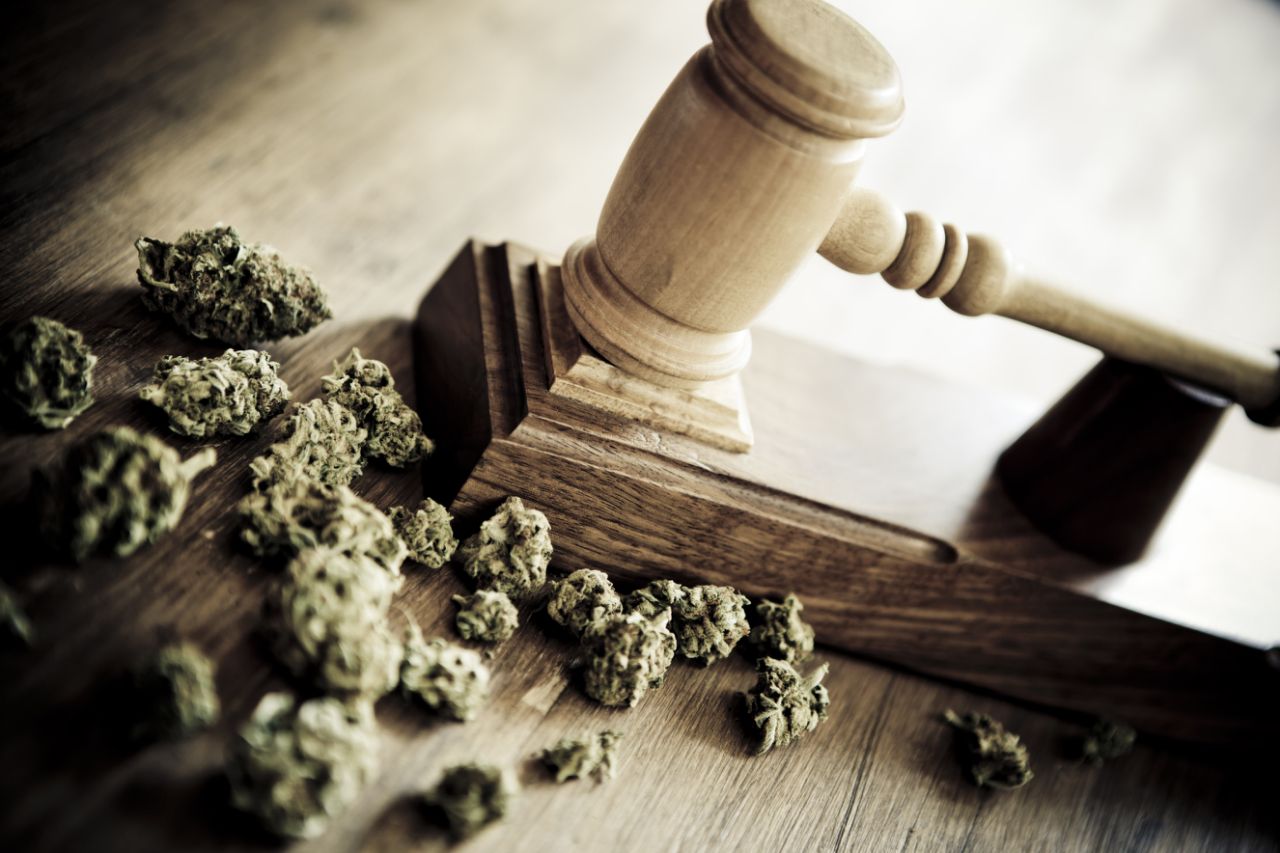The legal cannabis industry is budding before our eyes, and the United States is its crown jewel. Although cannabis remains an illicit substance at the federal level, it hasn’t stopped 33 states from legalizing medical marijuana in some capacity.
According to a newly released report, “State of the Legal Cannabis Markets,” from ArcView Market Research and BDS Analytics, global licensed-store weed sales could nearly quadruple between 2018 and 2024 to $40.6 billion. But total cannabinoid market sales — this includes pharmaceutical cannabinoid sales and the sale of cannabidiol (CBD)-based products in general retail stores — may hit nearly $45 billion in the U.S. alone by 2024, making it the “greenest” market in the world.
This past week, one of the most important states in the blossoming U.S. weed market made expected, yet long-awaited, history.
A judge’s gavel next to dried cannabis buds.View photos
A judge’s gavel next to dried cannabis buds.
More
Image source: Getty Images.
Illinois makes it official (finally)
On May 31, the Illinois Legislature passed HB 1438, a bill designed to legalize recreational marijuana, as well as expunge the criminal records of nearly 800,000 residents in the state who possessed or purchased up to 30 grams of cannabis (without violence). As is the case with previous cannabis bills, HB 1438 imposes excise taxes on recreational weed sold: 10% for products containing less than 35% tetrahydrocannabinol (THC), and 25% for products with higher concentrations of THC. (THC is the psychoactive cannabinoid that gets users high.)
The big question had been: When would Gov. J.B. Pritzker (D-Ill.) sign the bill? Pritzker had stated support for the legislation, and his intent to sign it, but multiple weeks had gone by with the bill collecting dust on his desk. On Tuesday, June 25, Pritzker finally made good on his word and signed HB 1438 into law, making Illinois the 11th state to have legalized recreational cannabis use, and the 10th to allow for retail distribution.
Illinois also made history in the process, becoming the second state legislature (along with Vermont) to approve recreational weed use, but the first to also legalize recreational distribution. Vermont doesn’t allow cannabis to be sold in retail stores, and the other nine states have legalized marijuana through the statewide ballot process.
Legal pot sales are slated to begin on Jan. 1, 2020, with ArcView and BDS Analytics projecting $1.14 billion in statewide sales by 2024.
Credit: finance.yahoo.com

